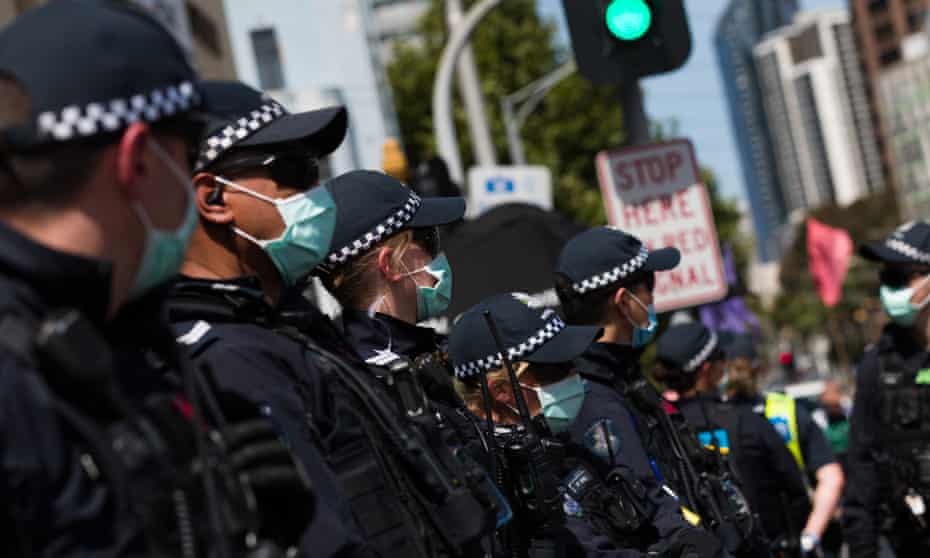Federal and state governments should spend more time trying to improve people’s lives and less time trying to keep them quiet.

The jailing of a 22-year-old climate change protester is a prime example of this authoritarian tendency. Eric Serge Herbert was sentenced to 12 months in prison for his part in a two-week anti-coal protest under the banner of Blockade Australia. Herbert had blocked a coal train by climbing it in the Hunter region of New South Wales. Perhaps he got off lightly: the NSW police commissioner, Mick Fuller, had threatened to charge protesters who block rail lines with laws designed for those who wilfully seek to harm or kill rail passengers, which carry a maximum sentence of 25 years.

Australia is the only democracy in the world without a national human rights framework. Australians do not enjoy a universal right to protest, protected by law, even though our history is littered with popular movements and disruptive protests that have helped to create modern Australia. The Australian constitution offers only an implied right to political communication, which in some circumstances has protected some protest rights, most recently in Bob Brown v Tasmania in 2017; and only the ACT, Victoria and Queensland have gone so far as to protect some human rights through legislation. This leaves many commonly used mechanisms for dissent, debate and progress tenuously protected – at best.
There is, however, a fundamental difference between protests that cause or threaten people with violence, and those which are merely disruptive. It is helpful to contrast the treatment of the “freedom protesters” in Victoria – who erected gallows in front of the parliament and called for the execution of elected officials – with the sentences meted out to those who protest Australia’s extractive industries by causing a nuisance.
There is an ongoing effort to restrict what is considered “legitimate” protest to that which is least effective. Prime minister Scott Morrison was quick to condemn the unjust treatment of protesters in Hong Kong, but at home, the Coalition has waged its own war on those campaigning for Indigenous rights, climate justice and animal welfare. Morrison has accused protesters of “economic sabotage” and threatened to throw the legal book at them after successful secondary boycotts of the Adani Carmichael coalmine. Laws being debated in the Senate would allow for charities that are even tangentially connected to protests to be deregistered, starving them of income. In Queensland, the use of “lock-on” tubes and similar protest paraphernalia now carries a two-year sentence.
In addition, state and federal governments have passed anti-protest laws that grant special protection to agricultural and extractive industries, which have a history of attracting protests from unions, First Nations peoples and environmentalists. Special laws penalising those who disrupt agricultural, forestry or mining activity, such as those under which Herbert was convicted, can be found across Australia. The Tasmanian government, which still bears the emotional scars of the Franklin Dam protests in the 1980s, sought repeatedly to enact legislation that, in its original iteration, would have included mandatory minimum sentences for protesters who on more than one occasion “prevent, hinder, or obstruct the carrying out of a business activity”.

Even as the federal and state governments seek to criminalise protest, they are working overtime to undermine many of the legal channels for holding them to account. The commonwealth now routinely violates the freedom of information laws, through which the public can find out how decisions are being made and the impact of government policies. Earlier this month the Office of the Australian Information Commission censured the prime minister’s own department for breaching freedom of information laws by failing to comply with requests within deadlines for the second year running. The Commonwealth Integrity Commission, the federal government’s neutered version of an independent anti-corruption watchdog, seems no closer to being implemented than when it was first proposed back in 2018.
No comments:
Post a Comment